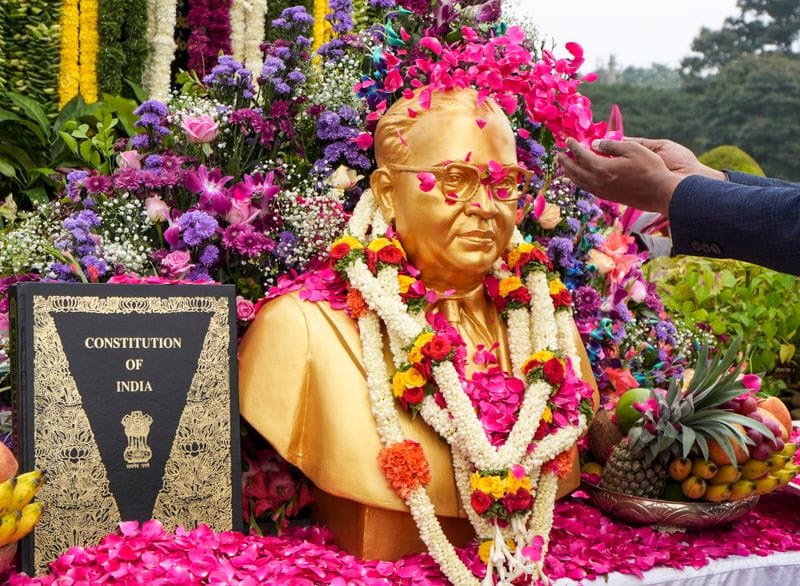
April 14,2025
One man, one vote — that's democracy. When one speaks, another hears. The government pretends to hear, and it must. Dr. BR Ambedkar, in his interpretation of Buddhism called Navayana, contended that caste must not stand in the way of freedom.
In India, it's essential to acknowledge that those who identify with religions, such as Sanatan, should concur that attaining self-realization is the principal objective of a virtuous life. This is what enlightenment is all about and that you may even term nirvana. Indications of achieving this condition are possessing dignity and education, which must be available to all rather than merely being a luxury for a select few. All should have the opportunity to achieve the pinnacle of Maslow's hierarchy of needs.
Most people today believe that caste discrimination is a relic of the past. Some even find it more acceptable to use the word varna, which sounds more pleasant.
The issue is that if a person believes divine justice will be served in the afterlife, they may think that pursuing justice in this life is not so pressing.
Caste continues to dominate the lives of Dalits on a large scale. For instance, in Karnataka a year ago, a young Dalit woman was poisoned after she married outside her caste. In Uttar Pradesh, a young Dalit girl was raped and was ignored by the police when she cried for help. In Uttarakhand, some Dalit families were ostracized socially for missing a religious function as they were unwell.
In Madhya Pradesh, a Dalit male was allegedly tortured by police officers who made caste-based abuses. Take manual scavenging — illegal, yet it occurs in some places. Only last month, Panth Lal Chandra, a 43-year-old Chhattisgarh worker, succumbed in New Delhi after inhaling poisonous gases while cleaning a manhole without any protective equipment. The government said they were not accountable. Between 2019 and 2023, 377 individuals were killed while scrubbing sewers and septic tanks.
Most researchers have demonstrated that manual scavenging has strong roots in the caste system.Although illegal, the practice still exists due to the fact that it has strong roots in the caste system, which places degrading tasks on specific groups, usually branded as 'impure.' Such a notion of impurity tends to be explained by the doctrine of karma.
Sociologist Pierre Bourdieu noted that symbolic as well as physical violence may increase when individuals normalize inequality and perceive social hierarchies as mere common sense.
Ambedkar did not desire pity; he demanded respect. He challenged the country to confront hard questions: Who decides the worth of an individual? What is purity all about? Who becomes entitled to being dvija, or twice-born? When does actual justice begin?